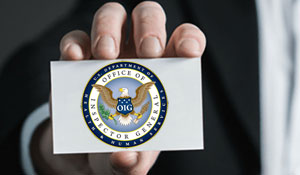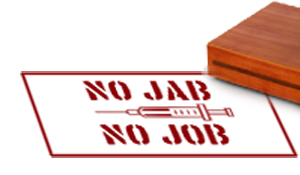Those of us who have been in the DME industry for enough years remember when every DME organization in the country had a storage room full of vertical files and/or bank boxes full of old patient records. The boxes were stored in piles, often piled up to the ceiling. Usually there were labels or writing on the boxes—something like “April 1987-January 1988” or “1990—A-L”. The boxes and filing cabinets were full of manila and Pend-a-flex folders labeled with patient names and chock full of medical records, billing information, social security numbers, dates of birth, and enough demographic information to make a telemarketer’s day.
HQAA Blog
Topics: Personnel Files, HQAA Accreditation, HME Accreditation Requirements, Patient File Requirements, Avoiding Deficiencies
It's tempting to believe that those Amazon trucks that zip down your street every day are a completely new phenomenon. But if you believed that, you’d be wrong. Today, Amazon trucks descend on neighborhoods bringing appliances, clothes, books & music, and even groceries. A generation earlier, we ordered music from flyers in the newspaper—carefully selecting stamps with our favorite titles and sticking them on the order page, promising to buy four or five additional albums in return for a half dozen free ones up front. And the generation before that ordered small appliances and kitchenware from Jewel T men. And the generation before that could order up a mail order “kit house” from the Sears Roebuck Catalog. Truth be told, mail order is as old as the mail itself. Subsequent generations have refined the practice over the last century and a half; but the practice of mail order anything is not new!
Topics: HME Accreditation Requirements, Delivery, Warehouse, Customer Service, Equipment
In the durable medical equipment industry—as well as in life—it always pays to have a backup plan! Whether its backing up data on the cloud, having contingency plans for staffing issues, or having multiple suppliers for a particular piece of equipment, these plans have saved countless heartaches, businesses, and even lives. While all of these are important, let’s focus today on a company’s responsibility to have adequate back up equipment for their existing customer/patients.
Topics: Business Practices, Equipment
The pandemic has changed how we look at employment in the United States in a multitude of ways. Many of us now “telecommute” to work, which opens up the opportunity to live farther from the office than ever before. Young people have new and different considerations and priorities when it comes to accepting a job. And of course, there’s the fact that it is increasingly more difficult to recruit and retain good long-term employees. Complicating these issues specifically in our industry are the pesky and sometimes misunderstood background check requirements.
Topics: Quality, Security, HQAA Accreditation, HME Accreditation Requirements, Compliance, Showroom, Retail, Delivery, Competence, OIG
Nothing strikes fear into the hearts of DME owners, managers, and staff more than the Office of the Inspector General (the “OIG”). The fear is perhaps deserved by an extremely small handful of industry people. The vast majority of our industry rank and file have nothing to fear from this sometimes maligned and misunderstood government agency.
Topics: Billing, HQAA Accreditation, HME Accreditation Requirements, Compliance, Avoiding Deficiencies, CMS, Business Practices, OIG
Part of our family’s holiday season tradition is the annual watching of “IT’S A WONDERFUL LIFE”. The movie is –in my opinion, anyway--a masterpiece of happiness and positivity. The primary lesson of the movie is that our deeds, both good and bad, have a profound effect on the lives of other people in our circle of friends and family. The main character, George Bailey, finds out in dream sequences reminiscent of Charles Dicken’s “A CHRISTMAS CAROL” that his life has had profound meaning because of his good work, kind deeds, and charitable attitude.
Topics: Quality Care, Retail, Delivery, Work, Customer Service, Equipment
WILL YOUR ORGANIZATION REQUIRE THE COVID VAX
In early September 2021, President Biden issued an executive order instructing OSHA to issue a standard requiring employers to require vaccination or weekly testing for Covid 19. There are exceptions including religious exemptions and also various disabilities (a physician’s statement that a person cannot receive the vaccination). The executive order applies to all Federal employees, contractors, healthcare workers, and employees of private sector employers with 100 or more employees. Various dates for implementation are mentioned in the order-- most of them are in November and/or December of 2021.
Topics: Personnel Files, Business Practices
The pandemic has changed our society in many ways. In some cases, it seems to have done irreparable harm. Fortunately, there have been some upsides and our society has learned some useful lessons along the way. One thing that some folks find beneficial and positive is that many companies and employees have learned that working remotely can actually work!
Since the early days of the Covid pandemic, surveyors have been avoiding “home visits”—those interactive ride alongs where the surveyor goes with a delivery person or clinician to visit a patient/customer in their home. This is for the safety of the staff members, the surveyor, and most important, the patient/customer. Although our process has changed a bit over the last few months, the surveyors are still not going out on home visits and are not likely to start that process up again any time soon.
Topics: Delivery, Customer Service, Surveys, Equipment
We’ve talked about retail showrooms before, but in the several years since we’ve covered the topic, retail has made a triumphant resurgence. The DME retail showroom’s amazing comeback is a product of a perfect storm of factors in the industry. Certainly, declining reimbursement and limitations to coverage for DME products and services is at least partially responsible. The fact that Baby Boomers are retiring and becoming eligible for Medicare is also a factor. Retirees today –compared to retirees of a decade or so ago—are tech savvy computer users who are comfortable shopping on line and also somewhat conditioned to paying for larger portions of their healthcare out of pocket. The bad news for local DME’s is that they are tech savvy and capable of shopping on Amazon-like platforms. The good news for local DME’s is that they are willing to pay more out of pocket for healthcare. Retail provides a “hedge” for your organization. If someone wants the traditional “deliver it and bill my insurance” DME model, you can do it. But you also have a showroom and are prepared to deal in cash.
Topics: HME Accreditation Requirements, Compliance, Showroom, Retail, Delivery, Customer Service











